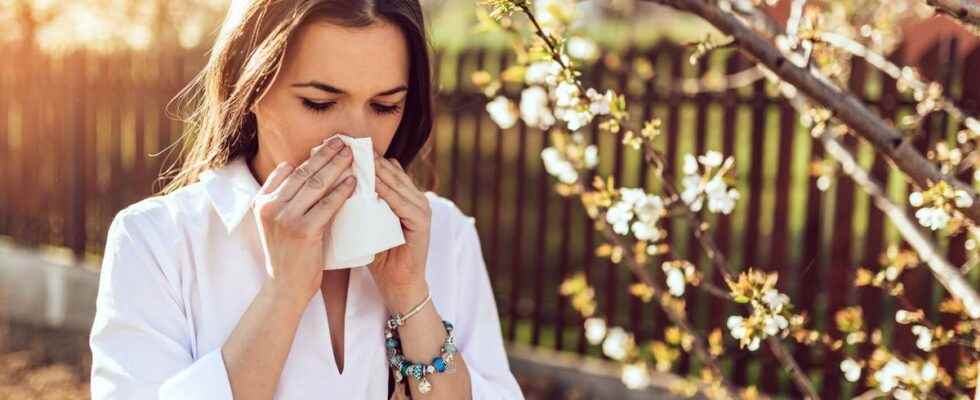Posted ,
Reading 2 mins.
The arrival of fine weather in spring also marks the beginning of allergies for people reactive to pollens, in particular the most widespread emanating from birches. This is why the National Aerobiological Surveillance Network (RNSA) studies the content of the air. Its objective is to keep a map of the departments most affected by pollen concentrations up to date in order to prevent allergy sufferers.
Which departments have the highest pollen levels?
There are different types of pollen that can lead to the occurrence of allergies. Pollen allergies are the most common, affecting approximately 25% of French people. According to the National Aerobiological Monitoring Network (RNSA), pollination will begin between March 26 and April 2. However, that of birch pollen will begin a little earlier, “from Thursday 24 March”, in particular with “significant concentrations […] over a large northern half of the country”.
Indeed, the RNSA has carried out a classification of the most affected French departments, in which pollen peaks are expected. “From the end of March to the end of April, we should therefore find birch pollen present over a large part of the country.”. Nevertheless, according to the RNSA, certain areas of France already present “significant levels” of birch pollen concentration. These include the “Parisian region“, from “Loiret, Yonne, Aube, Haut-Rhin and Jura”.
According to RNSA and Météo France forecasts, pollen peaks could occur on:
- March 26 in Paris,
- March 28 in Lyon,
- March 29 in Montluçon,
- April 2 in Rouen,
- April 4 in Amiens.
On the other hand, the network indicates on its site that “the risk of allergy is already at an average level in several departments north of a Bordeaux-Grenoble line”.
As a reminder, birch is a tree very present in the natural plant environment (woods, forests), but which is also planted in the city, in green spaces, on roundabouts or to embellish the entrances to residences, for example. These trees, which belong to the Betulaceae family, are physically recognizable by their shiny white trunks, including shades of gray or black.
Consult an allergist online
- Avoid opening the car windows;
- Avoid settling in the grass or having outdoor activities, especially on sunny days;
- Do not dry clothes outside;
- Open the windows and ventilate your home before and/or after sunset.
In addition, people allergic to pollen must follow the recommendations of their doctor and/or be monitored by an allergist.
